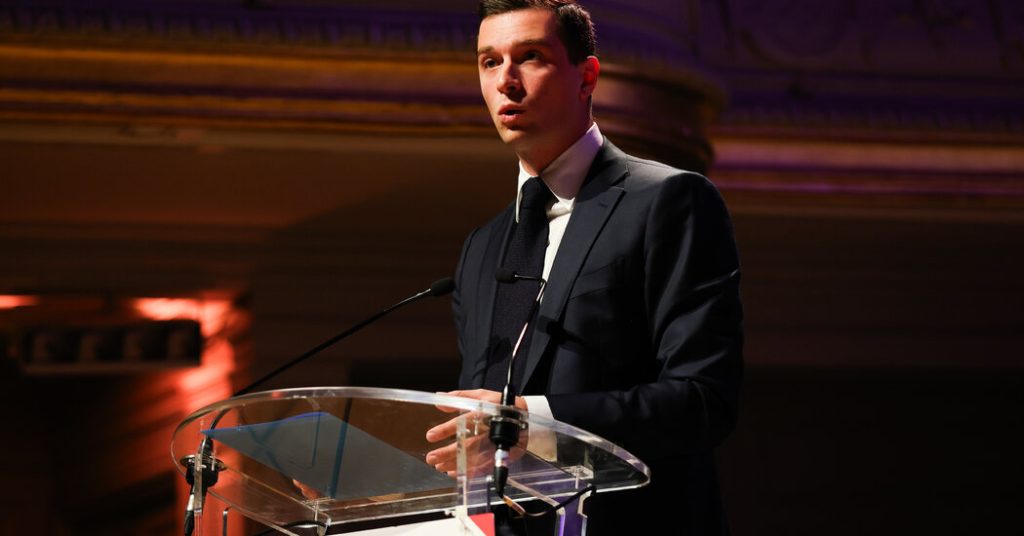Both the far-right National Rally party in France and its left-wing New Popular Front coalition are competing to save the country from financial ruin, with both parties presenting economic platforms that have been met with a chilly reception from French executives. MEDEF, the main employers association in France, held an “audition” for candidates from the main political parties competing in the upcoming legislative elections. While President Emmanuel Macron’s centrist Renaissance party has been weakened, executives were critical of both the National Rally and New Popular Front platforms, warning that they could endanger the French economy and distance France from the European Union.
With pivotal legislative elections approaching, the business leaders at the event grilled National Rally candidate Jordan Bardella on his party’s views on economic policy, immigration, and international investments. Bardella outlined priorities such as slashing taxes on energy, gas, and electricity, cutting income taxes for citizens under 30, and increasing salaries by 10 percent. He also emphasized the party’s focus on law and order and restoring order to France’s finances. The New Popular Front’s platform, including pledges to increase the minimum wage, lower the retirement age, and freeze prices for basic necessities, was also met with skepticism from business leaders.
The French business world’s concerns about the economic impact of the political parties’ promises do not necessarily reflect the opinions of the general population. Polls show that the National Rally is leading with 34 percent of parliamentary vote intentions, followed by the New Popular Front with 29 percent, and Macron’s Together bloc with 22 percent. The Institut Montaigne estimated that each party’s campaign platforms would cost over 10 billion euros annually, with the New Popular Front coalition’s platform projected to cost nearly €30 billion. Regardless of the business community’s warnings, voters seem to be leaning towards the National Rally and the New Popular Front.
While Finance Minister Bruno Le Maire emphasized the importance of maintaining stability to prevent chaos in France, the country faces challenges related to breaching EU budgetary rules. Despite criticisms, Le Maire’s pandemic support program was praised for preventing bankruptcies and destitution for workers. However, the program contributed to France’s current deficit and debt levels. Small business owners, particularly in rural areas, have expressed concerns about rising petty crime and illegal immigration, linking it to a sense of insecurity. While they desire order, they also seek to protect legal immigrants who contribute to the labor force.
The upcoming legislative elections in France are marked by a growing divide between the far-right National Rally, the left-wing New Popular Front coalition, and President Macron’s centrist party. Business leaders have raised concerns about the economic viability of the parties’ platforms, emphasizing the importance of stability and fiscal responsibility. While the National Rally and New Popular Front advocate for different approaches to addressing economic challenges, voters seem to be gravitating towards these parties in response to issues such as rising crime and immigration. The outcome of the elections will determine the direction of France’s economic and political landscape in the coming years.


